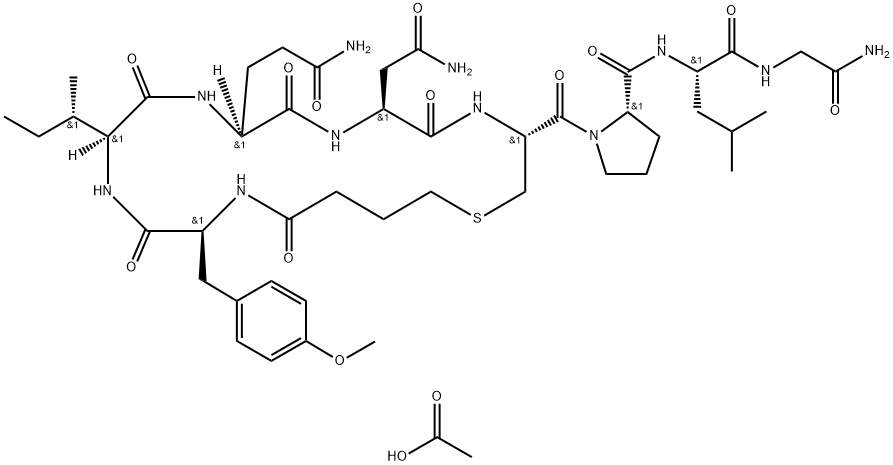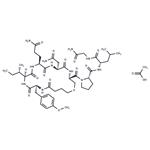Carbetocin is an oxytocin receptor agonist and a peptide analog of oxytocin .1 It selectively binds to oxytocin receptors over vasopressin V2 receptors (Kds = 1.96 and 61.3 nM, respectively). Carbetocin induces contraction of isolated rat uterine strips (EC50 = 48 nM) and inhibits oxytocin-induced contraction of isolated rat uterine strips (pA2 = 8.21). In vivo, carbetocin (0.35 mg/animal) increases the frequency and amplitude of uterine contractions in early postpartum dairy cows.2 Carbetocin (6.4 mg/kg, i.p.) prevents stress-induced reinstatement of morphine-seeking behavior in mice.3 It also reverses learned helplessness and decreases social withdrawal induced by chronic unpredictable stress in tree shrews.4 Formulations containing carbetocin have been used in the prevention of excessive bleeding after childbirth.
1.Engstr?m, T., Barth, T., Melin, P., et al.Oxytocin receptor binding and uterotonic activity of carbetocin and its metabolites following enzymatic degradationEur. J. Pharmacol.355(2-3)203-210(1998)
2.Bajcsy, á.C., Szenci, O., van der Weijden, G.C., et al.The effect of a single oxytocin or carbetocin treatment on uterine contractility in early postpartum dairy cowsTheriogenology65(2)400-414(2006)
3.Zanos, P., Georgiou, P., Wright, S.R., et al.The oxytocin analogue carbetocin prevents emotional impairment and stress-induced reinstatement of opioid-seeking in morphine-abstinent miceNeuropsychopharmacology39(4)855-865(2014)
4.Meng, X., Shen, F., Li, C., et al.Depression-like behaviors in tree shrews and comparison of the effects of treatment with fluoxetine and carbetocinPharmacol. Biochem. Behav.1451-8(2016)

